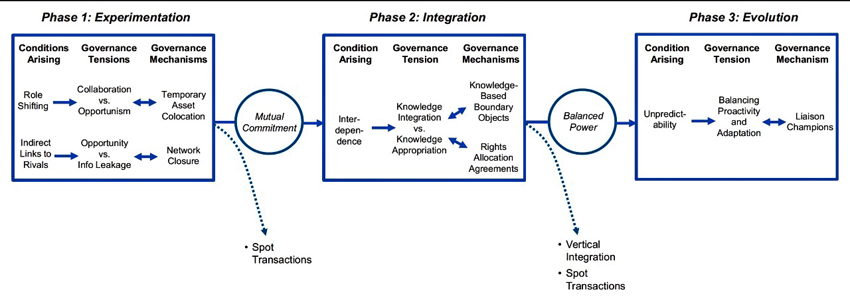
B2B: It Takes Two to Tango a Solution
A NEW PAPER BY ANDREA ORDANINI AND COLLEAGUES DESCRIBES HOW A SUPPLIER CAN BECOME A SOLUTION PROVIDER. ADDING SERVICE TO THE PRODUCT IS NOT ENOUGH: THE COOPERATION OF THE CUSTOMER IS KEY AND THE RIGHT MECHANISMS TO EASE THE INEVITABLE TENSIONS MUST BE PUT IN PLACEHarsh competition and the risk of commoditization press many business-to-business companies to add service content to their offer, thus labeling themselves as solution providers. Since solution-providing, though, entails coproduction, knowledge sharing and interaction, with the risk of opportunistic behavior and competitive information leakage, the shift is often unsuccessful.
Andrea Ordanini, BNP Paribas Chair in Marketing and Service Analytics at Bocconi, and colleagues gained access to both the managers of a leading solution provider (a supplier of measurement and automation control systems with customers across the world in a wide array of industries, including automotive, electronics, transport, health care, and food) and those of their clients. By observing and interviewing matched supplier-customer dyads engaged in solution development at different levels of maturity, they were able to analyze the solution development process, singling out the tensions that arise along the road and the governance mechanisms that successful dyads adopt in order to overcome critical issues.
They frame the process in three phases (experimentation, integration, and evolution) and two decision points that separate solution development phases, when both actors have to decide if there are the premises to advance or not the development process.

At the beginning of the process, when the parties don’t trust each other yet, the customer has to share key information with a solution provider that has relationships also with competitors and the supplier has to take responsibility for tasks that the customer previously performed. To overcome any suspect and minimize the possible loss, they resort to temporary asset co-location in the form, for example, of customer’s machinery temporarily located in the solution provider headquarters or supplier’s employees temporarily dispatched to the customer’s. In order to build trust, furthermore, the solution provider may organize closed network events, inviting representatives of competing companies: informal ground rules are thus established and all the actors understand what can be shared and what can’t.
If a mutual commitment (this is the first decision point) develops, the parts can then pass to the integration phase. They become interdependent and, on the one hand, have to strike water-proof rights allocation agreements and, on the other, generate so called boundary objects, that reflect embedded knowledge and are perceived as joint achievements. The second decision point regards the balance of power. If the interdependence grows in a balanced fashion, the parties can proceed to the evolution phase. If, on the contrary, one of the parties becomes significantly more powerful, the relationship can become one of quasi- or full vertical integration, or revert to occasional exchanges if the weaker actor reduces its efforts.
In the evolution phase, finally, the parties have to develop the capacity to face environmental unpredictability, balancing adaptation and proactivity. It can be done through the establishment of liaison champions with a deep knowledge of the counterpart and enough agency to anticipate changes and make flexible decisions.
«The bottom line for managers is that solutions do not naturally evolve», Prof. Ordanini says. «The executives of both the supplier and the customer must systematically monitor the relationship and be ready to design and put in place the right matching mechanisms, along the lines of our description».
Laura Colm, Andrea Ordanini, and Torsten Bornemann, Dynamic Governance Matching in Solution Development, in Journal of Marketing, First Published 3 October 2019, doi: 10.1177/0022242919879420.
by Fabio Todesco
